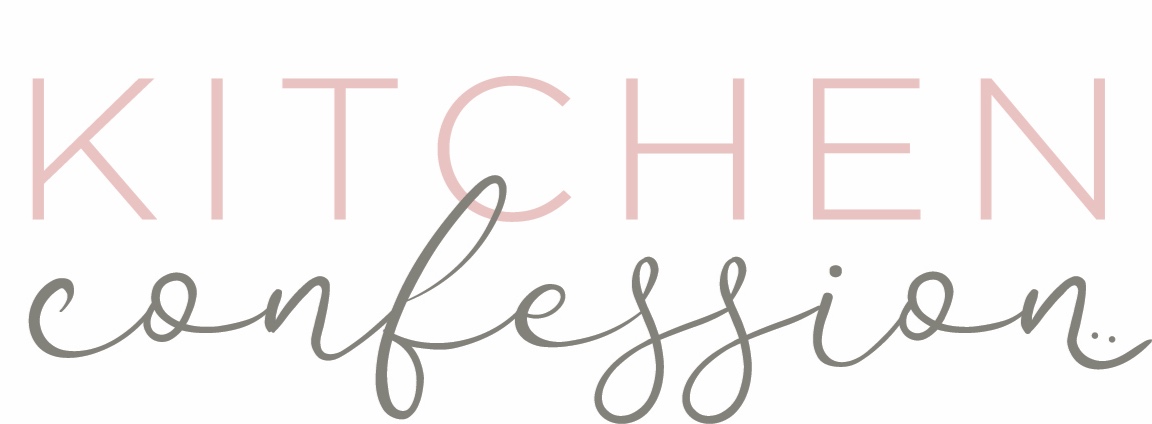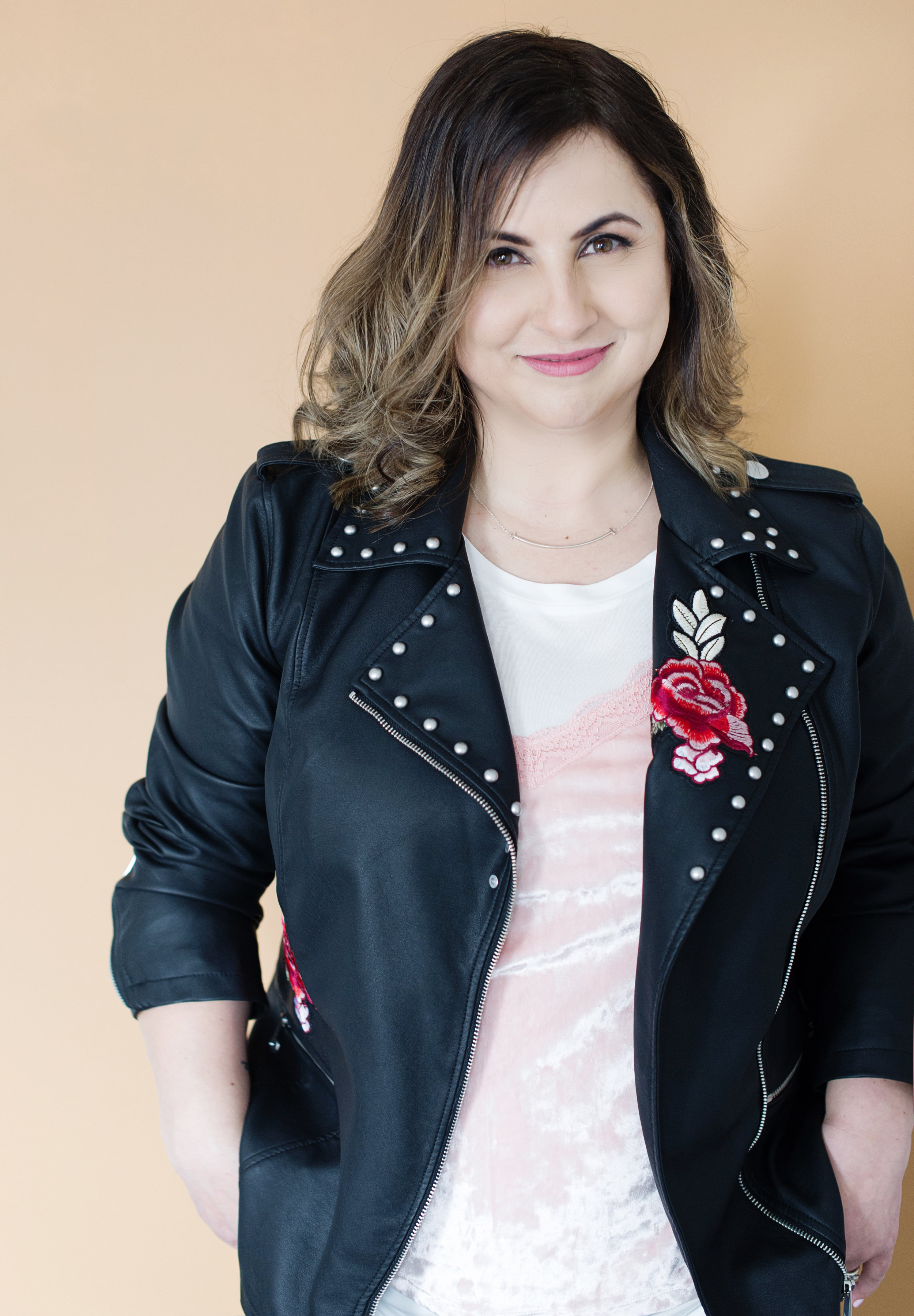This is a hard one for me (deep breath) but it's something I need to do for myself, to keep moving forward and live my best life. I haven’t always had the smile you see in this photo, nor have I always had a positive outlook on life. Especially when I was told I was going to slowly lose my sight and there wasn’t a damn thing I can do about it. My reaction was exactly what you would expect.
Wait! WHAT? I’m going blind?
Photo Description: Mary smiling, head tilted to the camera, wearing a studded leather jacket, t-shirt and smile necklace
It started at age seven. Playing a very intense game of hide and seek, my cousins and I scrambled to find our perfect hiding spot. Running down the porch steps, I missed the last one. I brushed off my scraped knee, dismissed it as being clumsy, not thinking much about it. As time passed, it became evident that I wasn’t missing steps because I was clumsy, but because I was struggling to see them. Months later as I stood at the top of a poorly lit staircase, ready to descend, I had difficulty deciphering where one step began and the other ended.
Over time, I began having difficulty seeing at night. Being a vocal child (perhaps too vocal if you ask my siblings), I described the visual irregularities I experienced, and my mom scheduled an appointment with the optometrist. Sitting in the oversized chair at his office, I heard the words “she has a stigmatism”, followed by “she needs glasses, she’ll be fine. Nothing to concern yourself with.” Little did I know that was the furthest thing from the truth. Shortly after I began wearing the largest black framed glasses I could find—my nod to Yves Saint Laurent and his iconic black-framed eyewear.
Tragedy struck
When my mom lost her battle with cancer at the age of forty-seven, I lost my best friend, my protector, and the only one I confided in about my vision loss. She left behind a husband and four children. I was the youngest child at thirteen. Sadly, life continued—and so did the deterioration of my sight. Aware of my vision loss yet unaware of what this meant. Unsure of what was happening to me, as I continued to grow into a teenager, date nights and movies began. Every teenager’s dream was to go out with a group of friends—no chaperone—and catch the latest buzz-worthy movie, but I dreaded this scenario. A dark room lined with steps—lots of steps! Panic surged through my body just at the thought of trying to make it to my seat. I dismissively told myself that no one would understand. I confided in a few close friends, but we were too young and naive to understand the symptoms. Pushing that fear down deep and using humour to deflect from the real issue of my vision loss, I developed a new normal.
In my early 20s, at nightclubs and bars, I used alcohol to explain away the missed steps, or failing to notice a friend and say hello. I turned down free drinks, not wanting others to notice I couldn’t see their hand passing it to me. Although I loved to dance, I chose to dance alone because I couldn’t make out facial features or expressions so the fear of someone catching on to my struggle was paralyzing.
Coming face to face with blindness
I was twenty one and enjoying a night out with friends at a local bar. The evening was coming to an end my nightmare began. I couldn’t find my way out of the bar. I looked for a flicker of light to bounce off one of the metal door frames, but saw nothing. I relied on my distance vision in dim lighting, and I began to scan the walls of the place and there it was, a red and white lit EXIT sign. Hallelujah! Although I found my way to the door following the sign, I recognized that something was terribly wrong.
The next morning, I walked myself into the Emergency Department of a local hospital, where they told me that I had a retinal irregularity. Unfortunately, the ophthalmologist I had the misfortune of seeing decided it was okay to blurt out “you’re going blind”. I will never forget that day, twenty four years ago. I glanced over to my sister, who was there for moral support, and saw the colour drain from her face.
Feeling helpless and alone
In shock, a tear began to stream down my face, to which the ophthalmologist responded with, “There’s no cure—stop crying, it’s not going to change a thing. See all you can see, because it can happen very quickly”. My sister quickly linked my arm with hers as we stood to leave the office—I’m certain if she hadn’t, I would have dropped to the floor. This is how I found out I had Retinitis Pigmentosa, a cruel degenerative eye disease that slowly robes you of sight. There is no treatment, no cure, and no control of what is happening to those suffering from the disease.
Every one of us has a story, and this is where my story begins. What came next was a lonely time of trying to hide my condition. You’ll learn more about this soon. Do I hide and let fear consume me? Only time will tell. Until we meet again. xo’s
“In a world where you can be anything, be kind”



